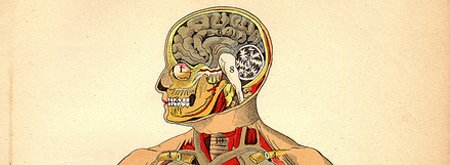What Does it Mean to be Human?
Paul Coulter asks why it is important to consider what it means to be human. In this second chapter, he lays out some good reasons why we should ask the question.
Practically Pointless
On one hand in my experience the question of what makes a human being is practically pointless. I have never had to ask in clinic, court, church or college whether the being in front of me was human or not. It seems that only humans walked into a hospital looking for treatment, came to the church seeking pastoral support or attended my lectures seeking enlightenment (!), and even the most cunning of lawyers has never tried in the courts I sit in to suggest that their client was outside the court's remit because they weren't human. In my everyday life, then, the question appears to be irrelevant and I suspect the same is true for many of you. Somehow we know instinctively what a human being is. At its most basic, being human is simply about being born into a line of human beings stretching back before living memory. Someone begat them, and that person in turn was begat by another (forgive my slippage into biblical language). Being human, then, means being born into the continuous community of human beings. This, of course, raises another question – when and how did that line of human heritage begin? When did the pattern of generations passing on accumulated knowledge and shaping the understanding of the next generation begin, and what was there before it all began? Was there a point where a creature that was not, at least by our modern conceptions, human gave birth to a creature that was, and, if so, what sparked the change and how did that first recognisable human find a mate who could be its equal? The question of human origins strictly lies beyond the remit of the discussion, although, it is scarcely possible to separate it entirely from the question of what it means to be human.
Ethically Essential
On another level the question is increasingly important, as, our understanding of ethics depends on our understanding of human life. Who deserves to be respected as human and accorded the full rights we expect humans to have? We live in an age when human rights are considered to be very important, even sacrosanct, but is there any basis for such rights? What is my duty to my fellow human being (if any)? Ethical issues at the beginning and end of life are especially to the fore in this regard as it is often as life begins and ends that categories and definitions become stretched. Is a fetus human? What of a severely demented elderly person? Who has the right to end human life? Can a mother or doctor decide to end the life of a fetus in good conscience? Can a terminally ill patient or their relative end their life? Once again we raise questions that this article is not intended to answer, but our views on issues such as abortion and euthanasia will surely depend heavily on our answer to the question of what it means to be human.
Deeply Personal
At a third level, this time deeply personal, the question becomes important in light of a constant contradiction I find inside myself. There is a tension at the core of my being which, I suspect is within every human being. I am a strange conglomeration of hopes and fears, goodness and evil, kindness and cruelty, potential and powerlessness, wisdom and folly, happiness and despair. I am capable of quite remarkable achievements and knowledge (I claim no special level of achievement for myself – I believe every human being is quite remarkable) and yet am so often marked by failure and ignorance. The tension invades my relationships too – others can be a source of companionship and community or competition and conflict. At a societal level the same tension seems to play out. Different forms of government, however good in principle, all seem to founder on human greed and selfishness. What a wretched human I am! Who can deliver me from this? Do I really need to be delivered or should I simply stop thinking? Is it even possible to be delivered? If so, how?
Go to 3. Is There Anything Unique About Homo Sapiens?
© 2010 Paul B Coulter
This article is reproduced here by the kind permission of the author.



